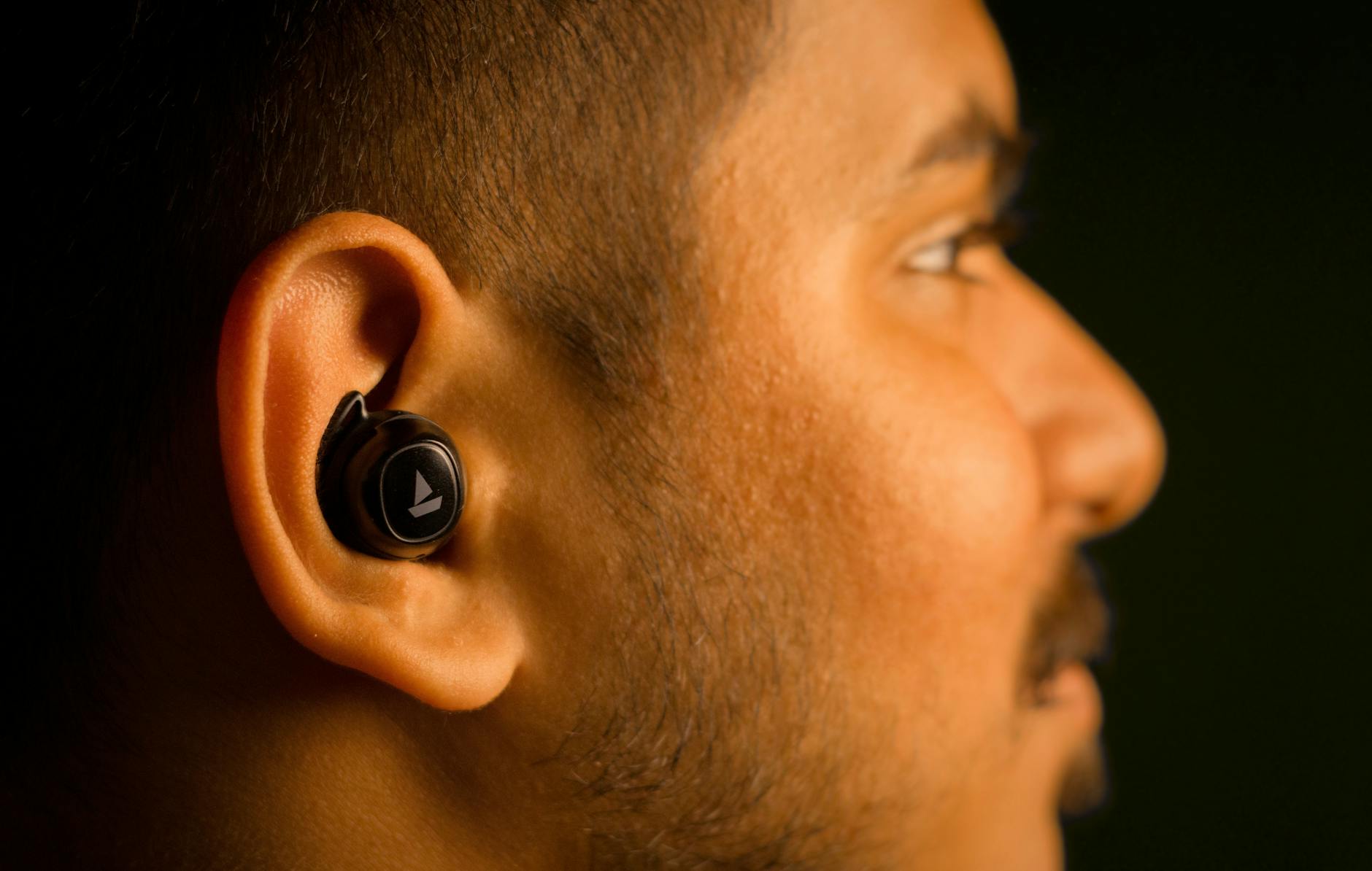What if one of the simplest ways to support your brain as you age is to help your ears? That idea has been buzzing in science for years—and now we have stronger answers. Let’s unpack the latest evidence with zero hype and tons of practical takeaways you can use today.
Why your hearing and your brain are inseparable
Hearing happens in your ears. Understanding happens in your brain. When sound is muffled or missing, your brain has to work overtime to fill the gaps. That extra “listening effort” can drain mental energy, increase stress, and nudge you toward social withdrawal—the perfect storm for cognitive decline.
- Listening effort: Straining to decipher speech (especially in noise) steals cognitive resources from memory and thinking.
- Social connection: Hearing loss can shrink conversations and community. Less engagement = fewer brain-boosting moments.
- Brain changes: Long-term hearing deprivation may reduce stimulation to auditory pathways, potentially accelerating structural and functional changes in the brain.
None of this means hearing loss causes dementia. But the two are connected enough that researchers asked a powerful question: if we treat hearing loss well, can we slow cognitive decline?
The big study everyone’s talking about
ACHIEVE: The first large, randomized trial
In 2023, the NIH-funded ACHIEVE trial examined whether a comprehensive hearing intervention could affect cognitive change over three years in older adults with untreated hearing loss.
- Who: Community-dwelling adults aged 70–84 with mild-to-moderate hearing loss.
- What: Participants were randomized to either a hearing intervention (hearing aids + fitting + counseling + communication strategies) or a health-education control.
- Outcome: Global cognitive change measured over three years.
What ACHIEVE found (no spin)
- Overall group: Across all participants, the hearing intervention did not produce a statistically significant difference in cognitive change compared with the control over three years.
- High-risk subgroup: In participants at higher risk for cognitive decline (drawn from an ongoing epidemiologic cohort), the hearing intervention slowed cognitive decline by about 48% over three years compared with the control.
Translation: If you’re already at elevated risk for cognitive decline, treating hearing loss comprehensively may help preserve cognition. For lower-risk adults over a three-year window, the benefit may be smaller or take longer to show up.
What about long-term and observational data?
For years, large observational studies have linked untreated hearing loss with faster cognitive decline and higher dementia risk. These don’t prove cause-and-effect, but they consistently show a strong association. Some observational studies also suggest that people who use hearing aids have slower cognitive decline than those who don’t—another promising signal, though still not a randomized trial.
Put together, the picture is clear enough for a practical takeaway: hearing health is brain health, and treating hearing loss earlier rather than later is a smart bet.
So, what exactly is a “hearing intervention”?
In research, it’s more than just handing you devices. The effective approach combines technology, fit, and skills—just like eyeglasses plus the right prescription and advice.
- Careful evaluation: Hearing test, communication needs assessment, and goal-setting.
- Properly fitted hearing aids: Programmed to your hearing test and verified for accuracy (ask about real-ear verification).
- Communication strategies: Positioning, lighting, speaking pace, and repair tactics for tricky moments.
- Assistive tech when needed: Remote microphones for restaurants, TV streamers for clarity, and captioning support.
- Follow-up and fine-tuning: As your brain adapts, your settings and strategies should, too.
It’s the package—not a single gadget—that seems to matter for cognition.
Who stands to benefit most?
- You’re 70+ with untreated hearing loss and notice more mental fatigue after conversations.
- You avoid social situations because hearing in noise is exhausting.
- You have multiple risk factors for cognitive decline (e.g., cardiovascular risks) and hearing loss is one more modifiable piece.
- Your family says you mishear or turn up the TV—classic signs to act now.
If you recognize yourself here, consider this your gentle nudge: book a hearing evaluation with a licensed audiologist. The sooner your brain gets clearer sound, the easier it is to stay engaged.
How better hearing supports thinking day-to-day
Reduce cognitive load
Clearer sound means your brain spends less effort decoding words and more on comprehension and memory. Many people report less “listening fatigue” once their hearing aids are dialed in.
Rebuild social confidence
Hearing aids plus simple tactics—like facing your conversation partner or choosing quieter tables—can turn “I’ll stay home” into “Count me in.” Social engagement is brain fuel.
Sharpen speech understanding
Modern hearing aids use directional microphones, noise reduction, and Bluetooth accessories to improve speech-in-noise. Add a small remote microphone at dinner and you might gain the clarity you thought was gone for good.
Your action plan: protect ears, support brain
Step 1: Check your hearing
- Do a quick screen: If you struggle with soft voices, group conversations, or TV dialogue, it’s time.
- Get a baseline audiogram: A full test sets your starting point and guides next steps.
Pro tip: Bring your partner or friend. They can help describe real-world challenges and celebrate your wins later.
Step 2: Choose hearing help that fits your life
- Start with professionally fitted hearing aids if you have more than mild loss or complex needs.
- For straightforward, perceived mild loss, over-the-counter (OTC) devices can be a bridge—just monitor benefit and upgrade if conversations still feel hard.
- Ask about accessories: Remote mics and TV streamers often deliver the biggest leap in clarity for the toughest situations.
Step 3: Make your hearing aids brain-friendly
- Ask for verification: Real-ear measurements confirm you’re getting the right sound at your eardrum.
- Use a restaurant program: Directional focus and noise reduction can ease effort in busy spaces.
- Lean on captions: Live captions and TV captions are not cheating; they’re smart cognition savers.
- Practice: Short daily listening exercises or guided auditory training can speed brain adaptation.
Step 4: Build daily habits that favor both ears and brain
- Move more: Physical activity supports blood flow to the inner ear and brain.
- Tame vascular risks: Manage blood pressure, cholesterol, and diabetes with your healthcare team.
- Sleep like it matters: Good sleep consolidates memory and supports hearing recovery after daytime noise.
- Protect against noise: Carry earplugs; keep volumes reasonable; take listening breaks.
- Stay social: Clubs, classes, volunteering, game nights—anything that keeps you learning and laughing.
None of these replace medical care, but together they create a powerful, brain-protective environment.
What we still don’t know (and why that’s okay)
- Timing: We’re learning whether starting hearing treatment earlier leads to bigger cognitive benefits over longer periods.
- Individual differences: Genetics, brain reserve, and other health factors likely shape who benefits most.
- The perfect recipe: Which combination of devices, counseling, and training produces the strongest cognitive support?
Science moves in steps. Right now, the safest, most empowering step is clear: don’t leave hearing loss untreated—especially if you or your family notice it affecting daily life.
How to talk to an audiologist (without feeling awkward)
- Lead with goals: “I want to follow dinner-table talk without feeling wiped out.”
- Share your toughest spots: Restaurants, phone calls, meetings, car rides—be specific.
- Ask about a plan: “How will we verify my settings? What follow-ups are included?”
- Bring your tech: Phone model, earbuds, TV setup—so streaming and captions work smoothly.
- Agree on milestones: Clear checkpoints for clarity, comfort, and reduced listening fatigue.
If you haven’t had a hearing test in a while, consider scheduling one with a licensed audiologist. If something feels urgent (sudden hearing change, ear pain, vertigo), seek prompt medical care first.
Bottom line
Hearing loss and cognitive decline are linked, and treating hearing loss—especially in people at higher risk—may help slow cognitive change. The win isn’t just on a test score; it’s in the energy you get back, the conversations you rejoin, and the confidence to say “Yes” more often. Your ears are one of the most practical doors to your brain. Keep that door open.
Further Reading
- Your Ears, Your Brain: The Cognitive Upside of Treating Hearing Loss (Hearing Loss) - Make Words Click Again: Auditory Training for Adults That Improves Conversation (Treatment) - Make It Stick: Your First 30 Days with New Hearing Aids (Hearing Aids) - Listening Fatigue Is Real: Use Your Hearing Aids to Spend Less Energy on Every Conversation (Hearing Aids)Frequently Asked Questions
Do hearing aids prevent dementia?
No device can guarantee prevention. However, strong observational data and a large randomized trial suggest that comprehensive hearing care may slow cognitive decline in older adults at higher risk. Even beyond cognition, better hearing improves daily communication, reduces listening fatigue, and supports social engagement—all good for brain health.
When should I start treating hearing loss for brain benefits?
Earlier is generally better. If you notice difficulty following conversations, especially in noise, or loved ones point it out, book a hearing evaluation. Starting treatment before you withdraw socially may preserve more engagement—and potentially more cognitive resilience.
What if my hearing loss is mild?
Mild loss can still increase listening effort and fatigue, particularly in noise. If conversations feel harder than they used to, discuss options with an audiologist. Some people do well with OTC devices for simple needs, but professional fitting, counseling, and possibly accessories often deliver clearer results.
Are cochlear implants linked to cognitive benefits too?
Research suggests that adults who receive cochlear implants for severe hearing loss often show improved communication and quality of life, with some studies indicating cognitive improvements. Individual outcomes vary, so discuss expectations with your implant team.



